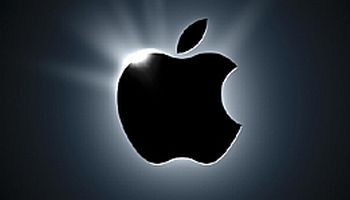

During its fiscal fourth-quarter earnings call, Apple said that by the end of the period, 93 percent of Fortune 500 companies were testing or deploying its iPad across their businesses.
On the iPhone side, according to the company, 60 percent of those firms were testing or deploying Apple’s handset. Those figures are up from the 91 percent and 57 percent last quarter that tried out the iPad and iPhone, respectively.
The company also pointed out that Lowes is “rolling out over 40,000 iPhones” to its employees. Considering those figures, it appears that Apple is far more of an enterprise-focused company than many thought possible.
Over the years, the Cupertino, California-based firm has been viewed as a consumer favorite and an IT manager’s nightmare. But now, thanks to the iPhone and iPad, all that has changed. And for the first time, many of the world’s largest companies are warming to the idea of using its mobile devices.
Read on to find out why:
1. Doubt over RIM’s future
2. The BlackBerry outage didn’t help
For many companies, this month’s BlackBerry outage hasn’t improved RIM’s chances retaining the loyalty of its Fortune 500 customers. Although that happened after Apple tallied Fortune 500 interest in its devices, the outage could very well drive those figures even higher this quarter. Employees at the top companies around the world rely on email and messaging to get their jobs done. With RIM’s services being down for more than a day in some cases, they weren’t able to do that. That was a serious hit to RIM’s credibility.
3. App availability
The success of Apple’s iPhone and iPad in the Fortune 500 might have quite a bit to do with the sheer number of applications available to users. Apple currently has over 500,000 applications in its App Store, including more than 140,000 designed for iPad users, alone. Other operating systems lack the sheer number of apps — especially corporate apps — that are found in Apple’s App Store. That fact matters to a lot of companies.
4. Consumerisation of IT Helps Apple
Over the last few years, consumerisation of IT has become an increasingly prevalent phenomenon in the corporate world. Employees are using their home devices in the office and IT staff, realising that there’s value in consumer-focused products, are warming to the idea of letting those products in. And as history has shown, it’s typically the world’s largest companies that become change agents. This time around, Apple is the beneficiary of that.
Continued on page 2
Page: 1 2
Moonshot project Taara spun out of Google, and uses lasers and not satellites to provide…
Pebble creator launches two new PebbleOS-based smartwatches with 30-day battery life, e-ink screens after OS…
Amazon loses appeal in Luxembourg's administrative court over 746m euro GDPR fine related to use…
Nvidia, xAI to participate in project backed by BlackRock, Microsoft to invest $100bn in AI…
Google agrees to pay $28m to settle claims it offered higher pay and more opportunities…
Chinese social media giant Tencent triples capital expenditure on AI data centres and other areas…
View Comments
It’s interesting to see Apple has managed to break the strangle hold BlackBerry has had on the market for so long. Do you think we will soon be seeing a range of Apple devices, specifically aimed at businesses?
Katie Leaver, LondonlovesJobs